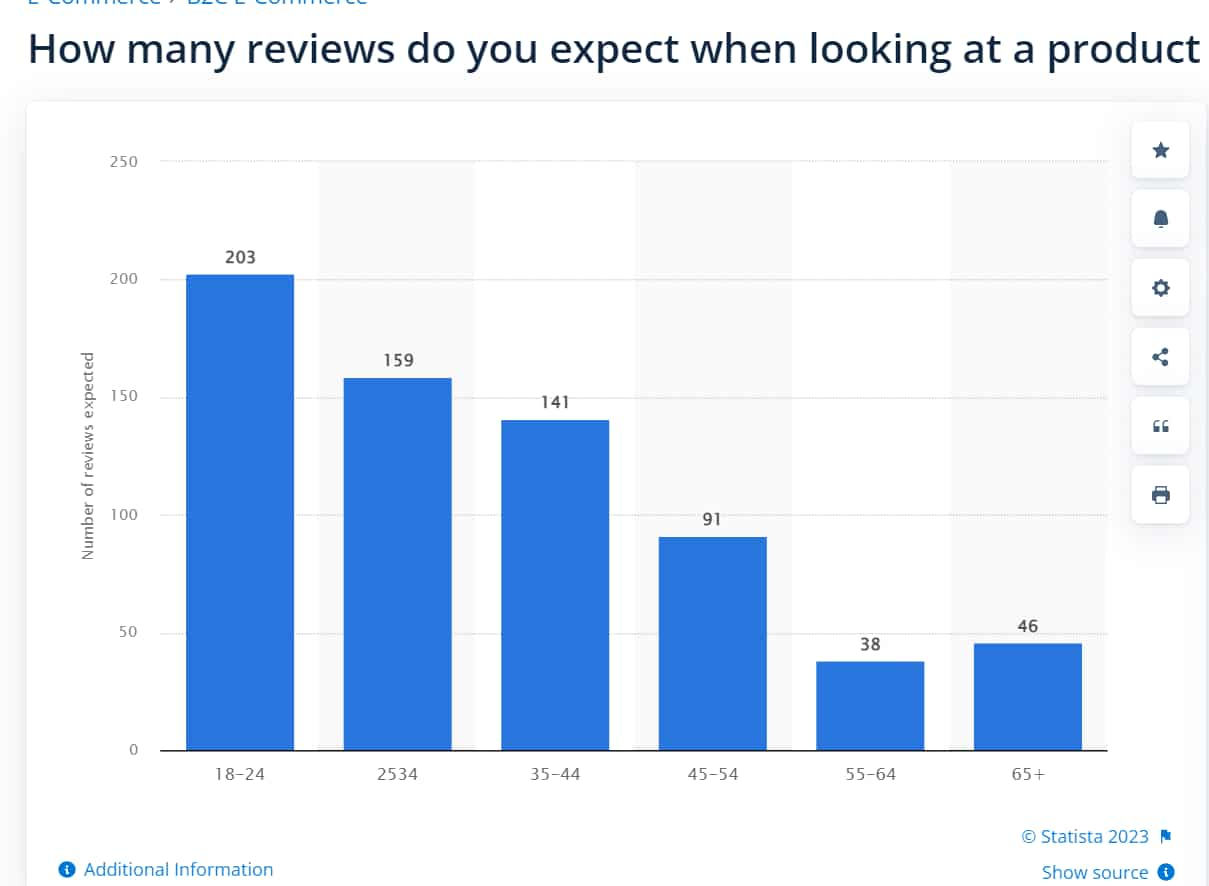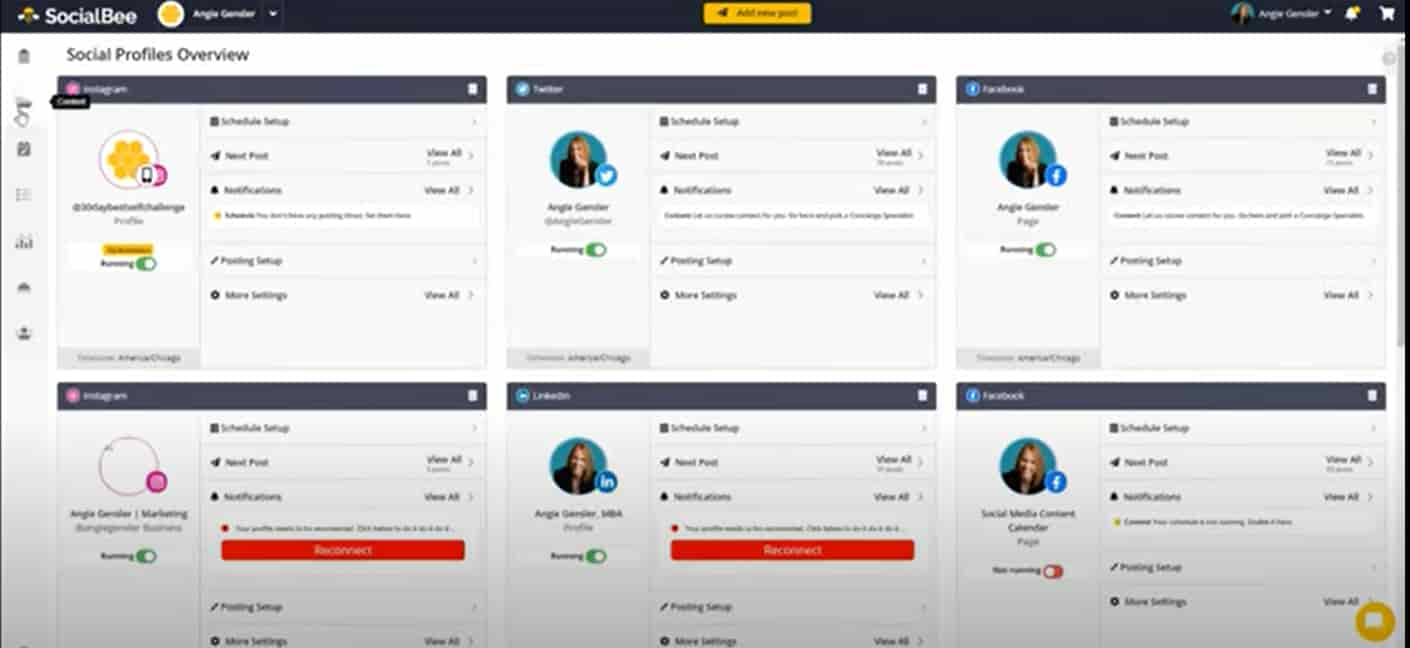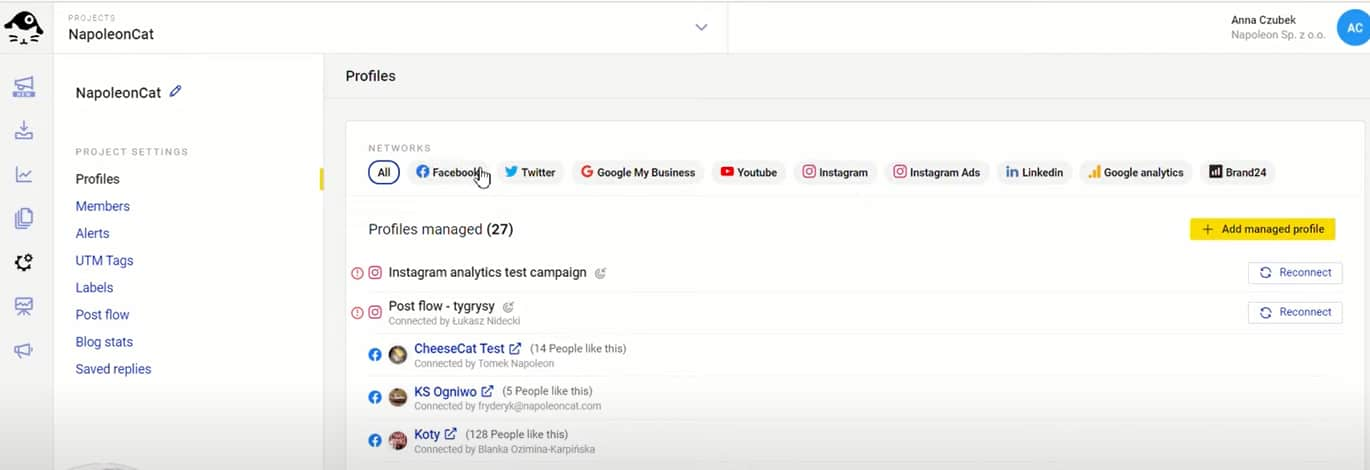5 Tips to Monitor and Manage Your Online Reviews
What is the first thing that pops up when someone searches for your brand online? First impressions matter.
But, having a great website and frequent social media posts is not enough to stand out and convince someone to buy from you. People are savvy enough to discover your brand’s reputation on their own.
Online reputation management is the process of managing the digital reputation of a person or brand. It involves monitoring and managing online content, reviews and content to create a positive perception.
In this guide, we’ll look at why you need to manage your online reviews and share tips on how you can monitor and manage your online reputation.
What makes reviews significant to your online reputation?
The internet has become the primary source of information for most people, making online reputation directly linked to sales.
In fact, 97% of buyers look at online reviews before purchasing. This means you could lose potential customers purely on a negative online reputation. Additionally, buyers expect your product to have a certain number of reviews for them to develop trust.
Managing your online reputation helps your brand retain accurate, positive, and relevant information for consumers. Having an online reviews management strategy also helps you:
- Build trust and credibility– A positive online reputation helps your brand build trust and become credible to potential customers, employees, and clients.
- Protect your brand against negative reviews– Most people will not do business with a company that has negative reviews. ORM helps you address negative reviews and provide an accurate view of your business.
- Helps enhance online visibility– With online reputation management is a great branding strategy that ensures your business appears in search results for the right keywords and phrases. The increased exposure provides more opportunities for growth.
- Provides insightful feedback– By managing your reviews, you collect valuable feedback and get useful insights about the overall customer experience of your products and services.
Tips for monitoring your reviews and online reputation
Today, someone can say anything about your business and share it with an entire community. Even worse, the internet doesn’t forget.
But, even though it’s a priority, monitoring your brand’s online reputation doesn’t have to be a full-time job. Here are tips that you can use to monitor your online reputation:
Google Alerts
Google alerts are free and can be set up for any keyword or phrase you want to monitor. Google sends you an email notification when new content for the keyword you set is published.
To begin with Google alerts, use your name or the name of your business as the keyword.
You can set Google alerts for any content that appears on SERPs:
- Blog posts
- News articles
- Social media updates
You can also set the frequency of the alerts, such as daily or weekly, and the sources and regions you want to monitor.
Google alerts help you detect any reputation issues early—especially because 53% of customers expect you to act on their negative reviews within a week. You get your brand mentions, negative reviews, and comments early and address them before they escalate.
Google alerts can also help you monitor your competitor’s brand mentions and stay up to date on their business strategies.
Monitor the content on your social media pages and on paid media
It’s good to manage and monitor your social media accounts daily. This keeps you in the loop of what is being said about you on social media.
Today, anyone who is upset or unable to reach you will probably write something on your Twitter page or a recent Facebook post. A simple post can quickly spiral into a thread of complaints if not well-monitored and promptly addressed.
To stay updated on what’s happening on socials, keep an eye on the notifications and address comments directly and gracefully on each platform.
You can also set up alerts using social media monitoring tools for specific keywords and hashtags. Using your brand’s name as a keyword helps you get notified when someone mentions you on social media.
Don’t just use social media to reply to concerns; engage your audience by commenting and sharing their posts to increase your activity.
If you’re running social media ad campaigns, click on your ad posts regularly to check the comments. Ads may not appear on your newsfeed, and they can easily be forgotten.
Check and monitor online reviews
89% of buyers consider checking reviews a part of their buyer journey. (Trustpilot)
Review sites can have a significant impact on your online reputation. Here’s how you can monitor them:
- Identify online review platforms where your business appears. E.g., Google My Business, Yelp, or industry-specific sites
- Set up alerts to receive notifications when someone leaves a review about your business.
- Use tools to monitor review sites regularly and get updates on new and existing reviews.
- Respond to all positive or negative online reviews and acknowledge each customer’s comments professionally. This is crucial for your online reputation management.
- Encourage your customers to leave reviews by adding links to review sites on your website.
Tips for managing your online reviews for a positive online reputation
Managing your online reputation helps you make great first impressions. Every time a potential customer searches for your brand, they’re not met with lots of unresolved complaints.
Here are tips you can use to manage your online reputation:
Be proactive
Don’t wait for user-enabled content. Use data to get actionable insights and create content that showcases your expertise, brand values, and unique product selling points. The content may range from blogs, affiliate marketing content, social media blurbs, infographics, videos, etc.
Being proactive also means being transparent—showing weakness and authenticity in your content and communication. For example, if you don’t ship products per the customer’s expectations, you can inform the customers prior.
Customers tend to give great reviews to businesses that are upfront and transparent in their communication. They tend to be more loyal, forgiving, and likely to spread the good word.
Engage your customers
Engaging your customers can start with anticipating their comments, reviews, and feedback. You can set up your online review profile on sites your customers will likely use.
Respond to their comments and questions promptly. Use different comments as an opportunity to tell your unique business story.
Tip: publicly thank all your reviewers without considering how they’ve rated your business—this communicates care to existing and potential customers. Not just damage control.
The significance of SEO in managing online reputation
SEO plays a crucial role in online reputation management. It helps businesses and individuals shape how they’re perceived online by their target audience.
SEO reputation management is a strategy you can use to manage your online reputation using SEO techniques. It involves optimizing your positive content and suppressing negative content on SERPs, and creating a positive brand image.
For example, negative reviews can hurt your local SEO rankings because search engines like Google give more visibility to positively reviewed businesses. With SEO reputation management, you ensure positive, accurate information about your brand appears on the first page of search results.
Here are tips on how you can use SEO to manage your online reputation:
- Promote positive content– Optimize content such as press releases, blog posts, and any content on your owned media channels. This ensures that positive content appears at the top of search results.
- Conduct an audit of the existing online content– This helps you determine what positive content you already rank for and in what areas you need to suppress the negative content.
- Suppress negative content– create and optimize fresh, positive content. This way, search engines will bury the negative content further down on SERPs, reducing its visibility and impact on your brand’s reputation.
Consider finding the keywords your business ranks for and creating multiple types of content. The content may include social media content, images, featured snippets, etc.
Tools and resources for online reputation management
As we’ve seen, trust means more sales and business. A positive online reputation means better SEO listing, more visibility, and an ability to attract potential clients.
Online reputation management tools can help you boost your overall brand reputation. They are platforms that allow you to monitor what is being said about your brand on review sites, social media sites, and basically anywhere on the internet.
Here are some tools and resources you can use to monitor and manage your online reputation:
ReputationX
ReputationX has been a leading provider of online reputation management services since 2005. They help individuals and businesses build, protect and restore their online reputations.
Their expert team specializes in digital marketing, PR, SEO, and content management— giving you comprehensive solutions on search engines, social media platforms, and other platforms that may contain damaging content.
They can help you control what people see about you or your business on search results, Wikipedia, and other platforms.
They can also help you monitor conversations about your brand, respond to customer feedback, and engage with the right stakeholders to ensure you build a positive online image.
In case your reputation is already damaged, ReputationX can help repair it. With a combination of content removal, suppression of negative search results, and strategic public relations efforts that helps rebuild your trust and credibility.
SocialBee
SocialBee is a social media management tool that provides an all-in-one solution. You can use it to manage your social media accounts, create and generate posts, schedule your posts, and get analytics on your content’s performance.
You can integrate SocialBee with over 8 social media platforms, including Facebook, Instagram, Pinterest, TikTok, Google Profile, LinkedIn, etc. It’s a great platform when you’re looking for the convenience of managing all your social media communication in one place.
You can use SocialBee to monitor brand mentions, create and schedule positive content, and engage with your audience. This ensures that you maintain a positive brand image online.
NapoleonCat
NapoleonCat is a comprehensive social media management tool that can track and reply to messages, reviews, and comments on multiple platforms like Facebook, Instagram, YouTube, TikTok, LinkedIn, and much more.
NapoleonCat can help you respond to your reviews on social media platforms and Google My Business.
Stay in control of your online reviews
Managing your online reputation is not a one-time affair. You must continually keep tabs on your brand and engage your audience to create a positive image.
To stay in control of your brand’s image, monitor your online reputation regularly. Respond professionally to negative feedback and comments to show that you’re listening to what the customers are saying—because most people will read reviews first.
Keep producing and promoting positive content and use SEO skills and social media to promote it to ensure the positive content ranks first. Since customers reward brands with a good reputation, the better your reputation, the stronger your brand is.
Tags: Online Reputation Management Services, Reputation Management.



